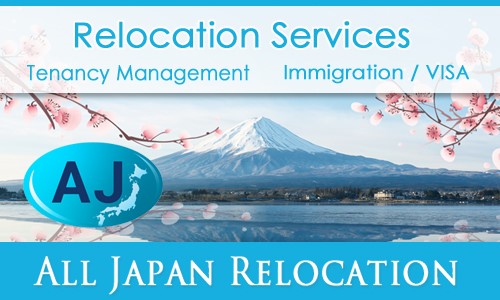How to Find English-Speaking Jobs for Foreigners in Japan

In recent years, Japan has been steadily progressing toward a more international labor force due to population decline, so there’s a growing range of jobs for foreigners if you know where to look. Read on to find out how you can search for employment in Japan that’s worthy of your resume.
If you would like to find out about Japanese job titles, please read Japanese Job Titles in English.
Japanese Language Requirements
You may face a number of challenges while searching for a job in Japan if you’re less than fluent. It can be difficult to navigate job postings or to find a company that doesn’t require at least business-level speaking skills.
If you already speak some Japanese, it’s a good idea to try and obtain Japanese Language Proficiency Test (JLPT) certification, which is used as a benchmark for language ability. Companies with primarily Japanese staff tend to look for at least business-level fluency in foreign candidates. JLPT N2 certification is typically considered the floor for business-level Japanese, but roles involving a high degree of communication may require native-level N1 certification.
Gaishikei, or multinational corporations in Japan, tend to be more flexible and may consider Japanese-speaking ability as a plus, but not a requirement. In this case, N3 certification (conversational level) can add to the strength of your application.
If you don’t speak Japanese but are willing to learn, attending a Japanese language school in Japan either full-time or part-time is a viable option, especially if you’re currently living outside of the country. Under a student visa, you’re eligible to work up to 28 hours a week part-time and even full-time during school holidays. While your primary purpose of staying in Japan must be education, it’s possible to secure career opportunities as well.
Common Jobs for Foreigners in Japan

As the Japanese labor force continues to shrink, the country has increasingly looked to skilled multinational professionals to fill labor gaps across a wide range of industries.
Translation and Interpreting
If you happen to have N1-level fluency or are fully bilingual, there are many opportunities to work as a translator or interpreter, either as part of a translation or interpretation firm or working freelance. Many Japanese-speaking bilingual professionals supplement their income doing translation work on the side.
Those who are not fully bilingual, but can read some kanji, may be able to find work as a proofreader, editor, or re-writer who revises texts that have been pre-translated by a Japanese native.
Teaching English
If you have limited Japanese-speaking skills, teaching English is a common profession as it often doesn’t require any Japanese language ability. Those with a teaching credential or background in education tend to be hired by universities and international schools, while those without formal teaching experience often pursue work in the eikaiwa, or private language school, industry. Eikaiwa companies in particular are an easier route for job seekers outside of Japan as most companies provide visa sponsorship for teachers, while some companies even offer relocation support.
In terms of salary prospects, universities and international schools tend to pay better salaries, but most people find that even entry-level eikaiwa positions provide a livable full-time wage for a single person.
IT Industry
If you have the technical skills, then IT is a popular route for finding work in Japan. Many companies are willing to hire mid-career engineers with minimal Japanese ability, since they will have a bilingual team leader or project manager to help facilitate communication. However, IT professionals with N2 level-speaking ability or higher have better access to higher paying positions and more opportunities for career progression.
Digital Marketing and Design
If your skillset is more on the creative side, you may find success looking for work as a digital marketing or design professional. Many Japanese companies are now looking to market products and services either to customers outside of Japan or to tourists visiting Japan, so they’re increasing their foreign creative talent. Mid-career professionals who speak even a little Japanese can find work, especially at small and medium sized companies that may not be able to attract fully bilingual candidates.
Business Development and Sales
If you’re an experienced business executive with a strong resume, it’s possible to find business development or sales positions, particularly among Japanese companies looking to expand globally. These kinds of executive positions don’t necessarily require Japanese language skills, especially for multinational companies, as they have dedicated staff to assist with translation and interpretation. However, speaking Japanese can give you access to higher level roles such as country manager positions.
Remuneration packages vary widely but often include relocation support and housing.
For job search links and recruitment agencies, please refer to the pages below.
>> Recruitment Agencies in Japan
>> Job Search Websites in Japan
Useful Job Search Links for Tokyo

If you feel you need additional support while job hunting, there are several local resources in Tokyo that you can use to find a job.
BizSpot
The app BizSPOT offers 'free business matching functions' along with 'coworking space reception payment functions.' Through a unified platform, connect with professionals across various industries, explore new business opportunities, and make the most of premium workspaces. Try BizSPOT now to elevate your business and unlock a world of possibilities.
Website: https://bit.ly/3vgbI1X
Tokyo Employment Service Center for Foreigners
The Tokyo Employment Service Center for Foreigners is a government office that provides job counseling, placement, and immigration advisory support to English-speaking residents in Japan. Its Foreign Residents Support Center (FRESC) assists job seekers who hold any of the following visa types.
• Engineer/Specialist in Humanities/International Services
• Skilled Labor
• Instructor
• Student (full-time work)
For other visa types (listed below), you should visit the Shinjuku Foreigners’ Employment Assistance and Guidance Center.
• Spouse or Child of Japanese National
• Long-term Resident
• Working Holiday
• Student (part-time work)
Website: https://jsite.mhlw.go.jp/tokyo-foreigner/english.html
Gowell Town
Website: https://gowell-town.com/ (Japanese)
Social Media: https://www.facebook.com/gowelltowneng/
Gowell Town is a free lounge located in Ginza, Tokyo, providing job hunting support to multinational job seekers. Free WiFi and power outlets are available to use.
American Embassy in Tokyo
The Human Resources Office in Tokyo, available through the American Embassy, provides recruitment services for U.S. citizens and those related to U.S. citizens for jobs at the Tokyo Embassy as well as the five Consulates located in Sapporo, Nagoya, Osaka, Fukuoka, and Naha, and the Foreign Service Institute in Yokohama.
Website: https://jp.usembassy.gov/















